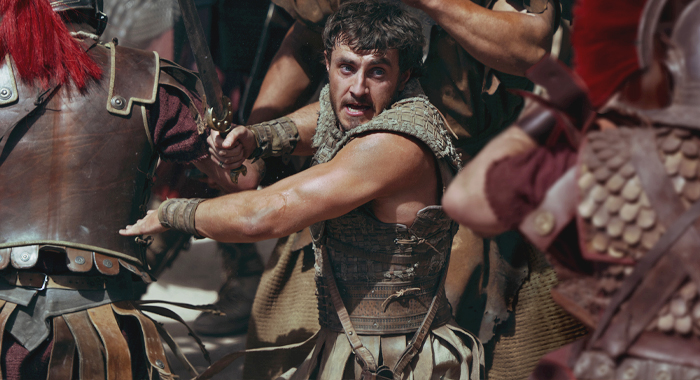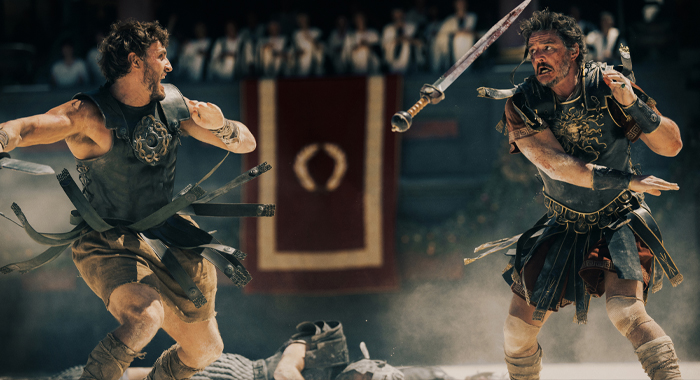Paul Mescal Talks Gladiator II and Acting with Denzel Washington on the Awards Tour Podcast
We revisit the rising star's earlier work and preview some of his upcoming projects, delving into what it was like to work with Ridley Scott in his most recent film.
This week on the Awards Tour podcast, our host Jacqueline Coley sits down with award-winning actor and director Oscar-nominated Actor Paul Mescal to discuss his latest turn as Lucius in Ridley Scott’s Gladiator II. In his first major big-budget film, he demonstrates why many in Hollywood are calling him this generation’s next big movie star. During their chat, Jacqueline revisits some of his earlier work, as well as an impressive crop of upcoming projects. He also lets us know what it was like to work with Denzel Washington and Ridley Scott and why many of the Irish actors making waves in America are a stay-close bunch.

Gladiator II continues the story that began in the 2000 Best Picture winner, as our lead Lucius is forced to enter the Colosseum and must look to his past to find the strength to return the glory of Rome to its people after his new home is conquered by tyrannical emperors.
Please enjoy this preview of our conversation with Paul Mescal and watch the entire discussion in the video above.
Jacqueline Coley for Rotten Tomatoes: You had a long time sitting with this one before starting the film. What was the most valuable part of the preparation for you?

Paul Mescal: It’s probably the longest I’ve had in terms of, I think, doing a play, in that — that was the thing that I had done just before Gladiator started — so it gives you your day. You know, if you’d been shooting a film beforehand, your whole day’s taken up. But at that point, we’d started A Streetcar named Desire in a theater off the West End, so at that point, when we’d gone into the West End, it was more familiar. So, it gave me the day to do the basics, like train, start putting on weight. And then I think I had two months before we actually started turning over the camera, which I haven’t had that kind of clean runway before. Anything before, yeah.
RT: Ridley is a very precise director. How does he direct you on set?
Mescal: Ridley’s gift to actors is the world that he sets up, so oftentimes, it’s what he’s not saying, if that makes sense. The work is so profoundly serious to him that he’s like, “If I’m going to set up this 360 world for you, you better know what you’re doing.” So it’s kind of wordless, in that sense. And I also think whatever it was about our understanding about who Lucius was, we never had any kind of tête-à-têtes in terms of, “What’s the lay of the land here?” Sometimes those things are useful, and with this, it was never really required.






